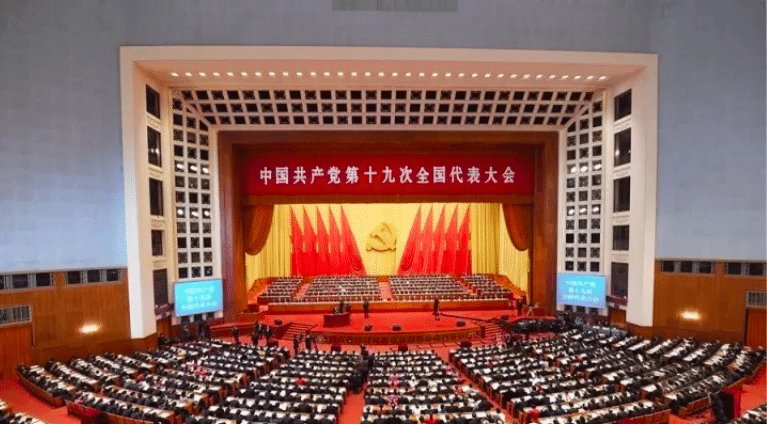Chinese president Xi Jinping’s report on the opening day of the Communist Party’s 19th National Congress has attracted much worldwide interest and coverage. The China Philanthropy Times (公益时报), the most prestigious news outlet within China’s charity sector, published an article yesterday analyzing how the report is relevant to the charity sector, and specifically focusing on the role of social organizations in a consultative democracy, a theme touched upon during the congress.

The article focuses specifically on three issues. First of all, it points out the difficulties for social organizations that want to participate in consultation. The article claims it to be a pleasant surprise that social organizations are included in the report as one of the pathways towards consultative democracy, and expresses its hope that this indicates a larger possibility for the institutionalized development of social organizations within consultative democracy. This idea had already been mentioned over the previous years. The 18th Party Congress in 2012 included the concept of “socialist consultative democracy system” in its report, and then the 3rd Plenary Session of the 18th Central Committee brought up the idea of including social organizations as a consultation channel in 2013. Then in 2015, the “CPC Central Committee’s Views on Strengthening Socialist Consultative Democracy” mentioned the exploration of social organization consultation. Additionally, the Ministry of Civil Affairs has held several seminars regarding the promotion of social organizations in consultative democracy.
There are however no explicit regulations currently covering social organizations’ participation in consultation. Tan Huosheng, an associate professor of the Department of Political Science at Tsinghua University, previously published an article discussing some difficulties involved in this issue. He claimed that many social organizations are lacking in consultative consciousness and ability; social organizations’ pathways to taking part in consultation of public affairs are limited; and the transformation channels for social organizations’ consultative achievements are deficient.
Secondly, the article discusses the possibility of the Chinese People’s Political Consultative Conference (CPPCC), the advisory body consisting of delegates from a range of parties and organizations that meets every year in the spring, adding social organizations as one of the sectors represented within it. The deputy director of the social policy research center of the Academy of Social Sciences, Yang Tuan, told the China Philanthropy Times reporter that consultative democracy is an extensive and multi-layered system, and the report of the 19th CPC National Congress specifically defines the CPPCC as an important channel for socialist consultative democracy and a specialized consultative institution. In Yang’s opinion, this may indicate that the CPPCC will bring in a number of social organization representatives and social organizations may be incorporated into the CPPCC as a sector. In this way, social organizations will have a public channel to present their opinions and greatly enliven the atmosphere of consultative democracy within the CPPCC.
Lastly, the article emphasizes social organizations’ potential ability for enhancing cultural soft power. The China Philanthropy Times’ reporter interviewed Professor Huang Haoming from the China Global Philanthropy Institute (深圳公益学院), who stressed the importance attached to cultural soft power in the report. Huang said that although social organizations were not mentioned as part of international exchange, there has still been a significant change. The mention of “cultural and educational exchanges” shows more focus on society and less on politics, and better reflects the general public’s demands. Huang praised this change and claimed that social organizations can join in the effort to further promote China’s international dissemination.



